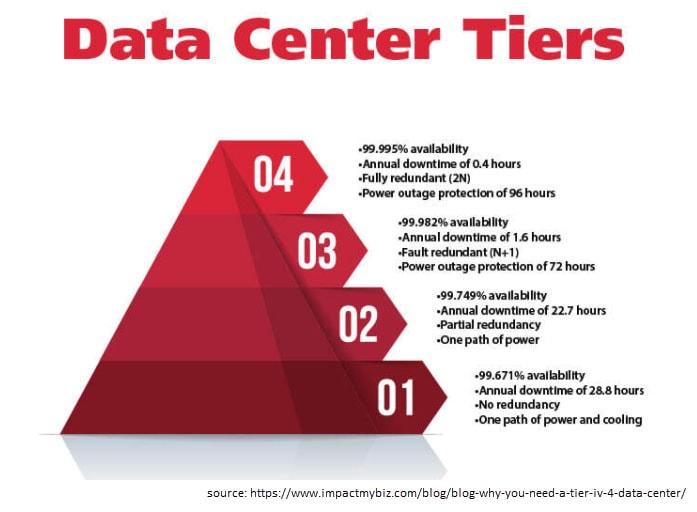In today’s technological revolution, cloud computing has been one of the more influential players. Though the F&B industry was slower to adapt to the cloud, F&B producers have now latched on with little intention of letting go. In many ways, cloud has proven to be a great technological asset, allowing companies to maximize their potential by improving general production and business processes of a work day. Today, manufacturers who have adopted cloud computing are reaping the many benefits it has to offer. Keeping the F&B industry in mind, we explore some of these benefits below – and encourage you to try the SpecPDM Cloud.
Misconceptions
Before getting to the good stuff, perhaps it’s best to first point out misconceptions that companies have about cloud.
First Misconception: Cloud computing is insecure.
While the thought of hosting data in a cloud service instead of an on-premise server seems risky to some, cloud data centers are just as – if not more – safe than other solutions because they have multiple layers of security. For SpecPDM Cloud, SpecPage has opted for a private cloud in a Tier IV Data Center in Switzerland, which has been ranked as one of the safest places in the world to host data according to Cushman & Wakefield’s Data Center Risk Index. See in the graphic how Tier IV compares against the lesser tiers.

Free E-Book
How Can Food Producers Strategize for Industry 4.0? Learn how to build a foundation that supports change and spurs growth!
Considering this, SpecPDM Cloud has the most stringent security protocols, meaning your data will be safe.
Second Misconception: Cloud is not reliable.
Some users fear that the servers that are used for cloud computing are not reliable. Companies are worried that the data center that houses their systems will experience downtime, resulting in lost data. What they may not know, however, is that in the very unlikely event that the server drops (less than one hour annually in a Tier IV center), data can always be saved because of the automatic backups and restoration behaviors that are built into the cloud servers. SpecPage’s servers run 24/7 and with comparable network monitoring and support.
Third Misconception: Transitioning to cloud is hard work.
Companies that are satisfied with their current on-premise software see cloud migration as an unnecessary, cumbersome step that could be riddled with flaws. In other words, they anticipate that migrating to cloud will have no value because the upkeep will be hard. Instead, cloud’s infrastructure creates the opposite scenario: reduced hardware from a local space means that companies do not have to deal with maintenance of servers because it is all set up for them remotely. SpecPage promises to support companies with installations of SpecPDM Cloud and its future upgrades, regardless of how customized the current on-premise system is.
The Benefits
In no particular order, F&B companies who adopt a cloud system will gain the following advantages for their business:
- Quality control and consistency. Particularly for food safety companies who must keep strict records of compliance measures and protocols, the instantaneous data sharing that occurs with the cloud allows for stronger maintenance and collaboration. So long as the employee has the necessary permissions, users of the cloud can access compliance documents easier than ever, and revise them just as quickly. As a result, food safety measures could always be kept up to date.
- Streamlined reporting. The F&B industry is constantly changing, and so it is important that companies can extract data at any given moment to make prompt business decisions. With the cloud, food manufacturers can gain greater insights about their business practices with built-in analytics and reporting features. F&B producers will have quick access to product inventory and its surrounding details, thus being able to make decisions about shelf-life, product quality, if more stock is needed, etc.
- Business agility. Along the same vein, F&B producers must be agile with their business; in other words, companies need software that can meet the dynamic nature of the industry. Cloud software allows for expansion without worrying about hardware modifications, so the software can easily grow and evolve with the business via digital expansion packs. Considering that the cloud server can be accessed seamlessly from multiple locations as opposed to on-premise solutions that require local connection, international business is just as adaptive.
- Reduced costs. Cloud also helps companies reduce IT complexities so that costs are cut significantly. By removing on-premise servers, companies can save money on the hardware itself, as well as the cost of maintenance. On-premise servers can be largely unpredictable with constant upkeep – but cloud eliminates this headache. As a result of cutting back on expensive IT fees, companies can reallocate funds in other places of the business for optimal growth.
Cutting fees in return for optimizing business performance seems like a no-brainer. SpecPage’s SpecPDM Cloud can give F&B producers specifically this – and more.
The SpecPDM Cloud is perfectly designed for food and beverage production and maintenance, so F&B companies can expect to receive the general benefits of a cloud computing software coupled with a system that is literally built for the industry’s needs.




